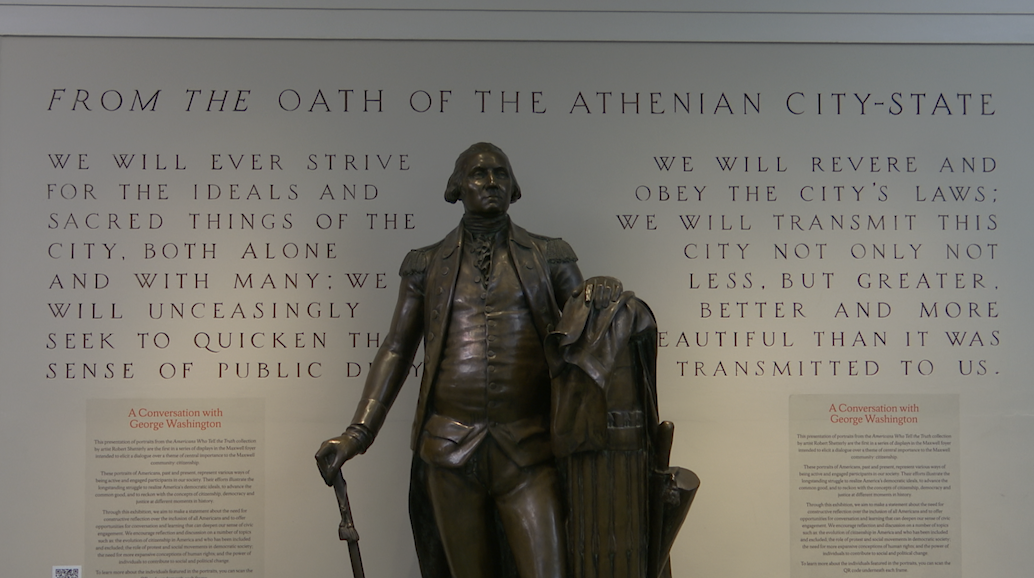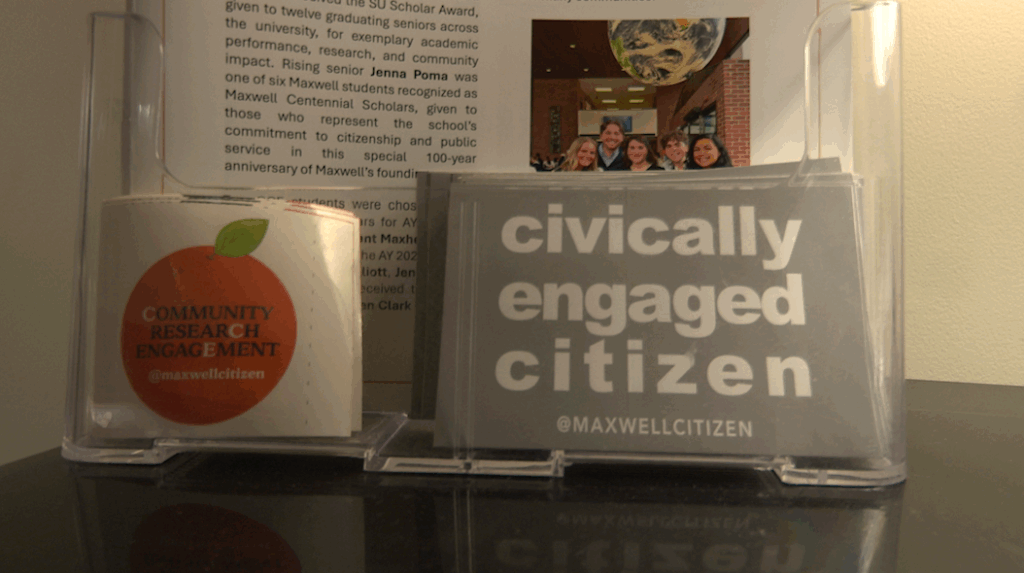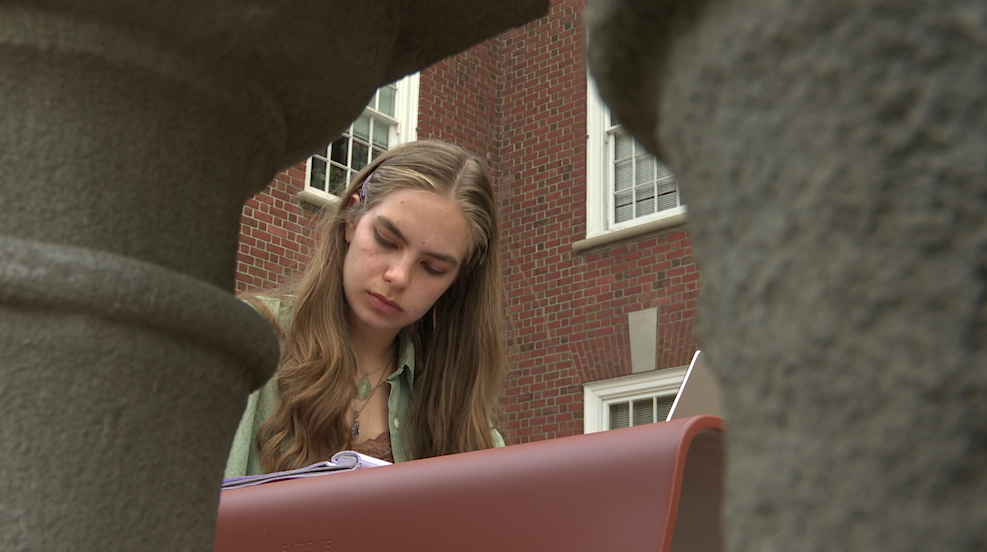Syracuse, N.Y. (NCC News) – “We will ever strive for the ideals and sacred things of the city. Both alone and with many; we will unceasingly seek to quicken the sense of public duty.”
These words can be seen front and center, just outside the Maxwell Auditorium at Syracuse University. The Athenian Oath is what students of the Maxwell School of Citizenship and Public Affairs know all too well, as it highlights the importance of community engagement and public service.

The Maxwell School’s citizenship and civic engagement major, or CCE, will now only be offered as a minor. In addition, a CCE office will open to focus on experiential learning for all Maxwell students. Dean Van Slyke stated in a news release that this decision aligns with their “academic strategic plan” to open the program to a broader range of students.
Director for the Maxwell Office of Civic and Community Engagement, Amy Schmidt, said that she hopes this decision will make community service more accessible for students not only in Maxwell, but across Syracuse University.
“If you’re committed to making the community a better place, but your curriculum is so overwhelming that it is really tough to fit in a double major, having a minor as an option, that still maintains the really strong values of Maxwell, is going to make your education experience that much richer,” Schmidt said.
The CCE major was a 30 credit, dual program that required an internship, research and capstone class. The minor will be reduced to 18 credits, without the capstone requirement.

Sabrina Lussier is a senior triple majoring in CCE; environment, sustainability, & policy; and geography. She hopes to develop a career in urban planning. Lussier said that she appreciates the “action based” learning she receives from her CCE capstone class.
“It was really important to me, and the urban planner that I want to be, to actually interact with residents,” Lussier said. “I think this was really beneficial for me.”
SU alumna Mary Keville, who was a CCE major, said that the program enhanced her resume and emphasized her commitment to non-profit work, something that she doesn’t think a minor would convey.
“Non-profit work is not the most forgiving field in the world,” Keville said. “It could be really hard, especially if you’re working with really vulnerable populations… I hope when people saw that on my resume they knew I had the skill.”
With the goal of the minor to make civic engagement more open to the student body, Lussier worries that this may “dilute” the program.
“CCE is a really small major, it always has been, and that was the beauty of it,” Lussier said. “I worry that the dilution will be so severe that it won’t retain the same level of impact for either the students or the local community.”

Now, Lussier is the last of her kind with the CCE major. She said the unique program is what drew her to Syracuse.
“If I wanted to have five different options for a social science major, I would go to a small liberal arts school,” Lussier said. “But I came to Maxwell because they had a reputation of prioritizing those programs.”
The CCE minor is still in its early stages, and its future impact remains to be seen. Schmidt, however, is confident that it will grow and reflect the Maxwell School’s core values.
“We’re all looking for ways to incorporate the Athenian Oath,” Schmidt said. “Making our community better than it was before we came here.”
Lussier is hopeful that the Athenian Oath still sits at the core of Maxwell.
“I think that there is still a lot of good in the office, and some of those core values are retained,” Lussier said. “But I do think there is an element that’s lost when such a unique major like CCE is sunsetted.”
